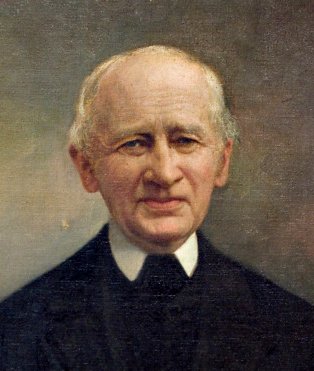 Johann Gottfried Galle, a German astronomer, was famous for his assistance in the discovery of the planet Neptune in 1846. Early in his life he worked as an assistant for Johann Franz Encke at the Berlin Observatory in 1835. Galle sent a copy of his PhD thesis on criticizing Ole Romer?s 1706 observations of Uranus, to Urbain Jean Joseph Le Verrier in Paris, France. A year later, Le Verrier responded by pointing to him the observations he found regarding the orbital activity of Uranus. He followed the predictions of the French astronomer, Urbain Jean Joseph Le Verrier and the English astronomer, John Crouch Adams. When Galle received the calculations of the position of the undiscovered celestial body (which would be later known as Neptune) from the director of the Paris Observatory, Le Verrier, he immediately stumbled upon the planet with the help of his student and colleague, Heinrich d? Arrest.
Johann Gottfried Galle, a German astronomer, was famous for his assistance in the discovery of the planet Neptune in 1846. Early in his life he worked as an assistant for Johann Franz Encke at the Berlin Observatory in 1835. Galle sent a copy of his PhD thesis on criticizing Ole Romer?s 1706 observations of Uranus, to Urbain Jean Joseph Le Verrier in Paris, France. A year later, Le Verrier responded by pointing to him the observations he found regarding the orbital activity of Uranus. He followed the predictions of the French astronomer, Urbain Jean Joseph Le Verrier and the English astronomer, John Crouch Adams. When Galle received the calculations of the position of the undiscovered celestial body (which would be later known as Neptune) from the director of the Paris Observatory, Le Verrier, he immediately stumbled upon the planet with the help of his student and colleague, Heinrich d? Arrest.
A mere 1 degree away was the discrepancy from the calculations of Le Verrier. This was an astounding discovery for the astronomers. His discovery was almost hindered by the Director of the Cambridge Observatory, James Callis when he refused to allow Galle to utilize the observatory?s equipment so as to assist in locating the celestial body that Le Verrier wrote about.
He diligently worked at the Breslau Observatory and became a professor in astronomy in 1851. Throughout his life as an astronomer, he pursued the study of the comets. His son, Andreas Galle, also took an inclination to the sciences and the principles of astronomy. He became an assistant to his father when he published a list of 414 comets in 1894. In less than a year, from December 1839 to March 1840, he discovered 3 comets in quick succession. To honor Johann Gottfried Galle, two craters were named after him, the two being craters found on the moon and one on Mars which resembled a happy face. The asteroid 2097 Galle and the ring of Neptune named after him. For his extraordinary contributions, especially in the study of the comets, he received great honor.
